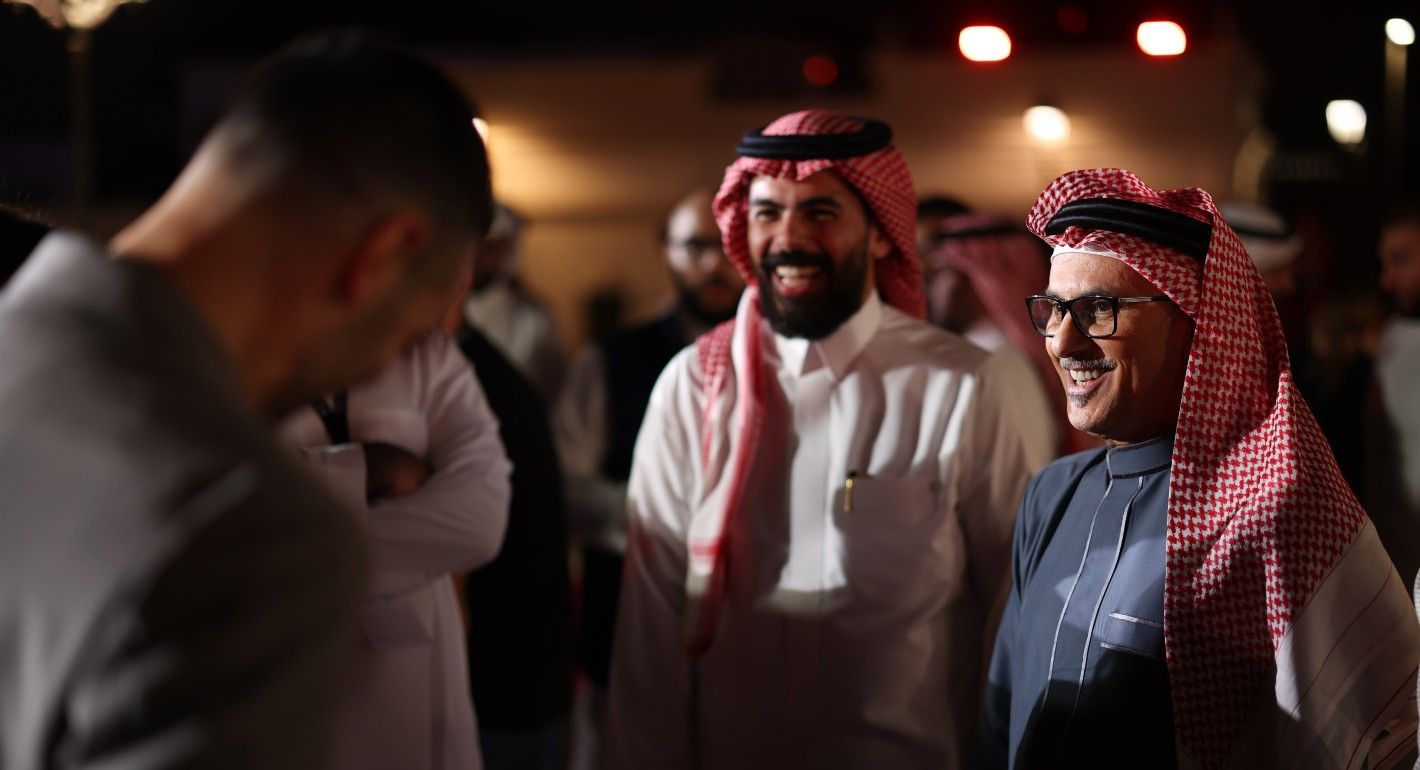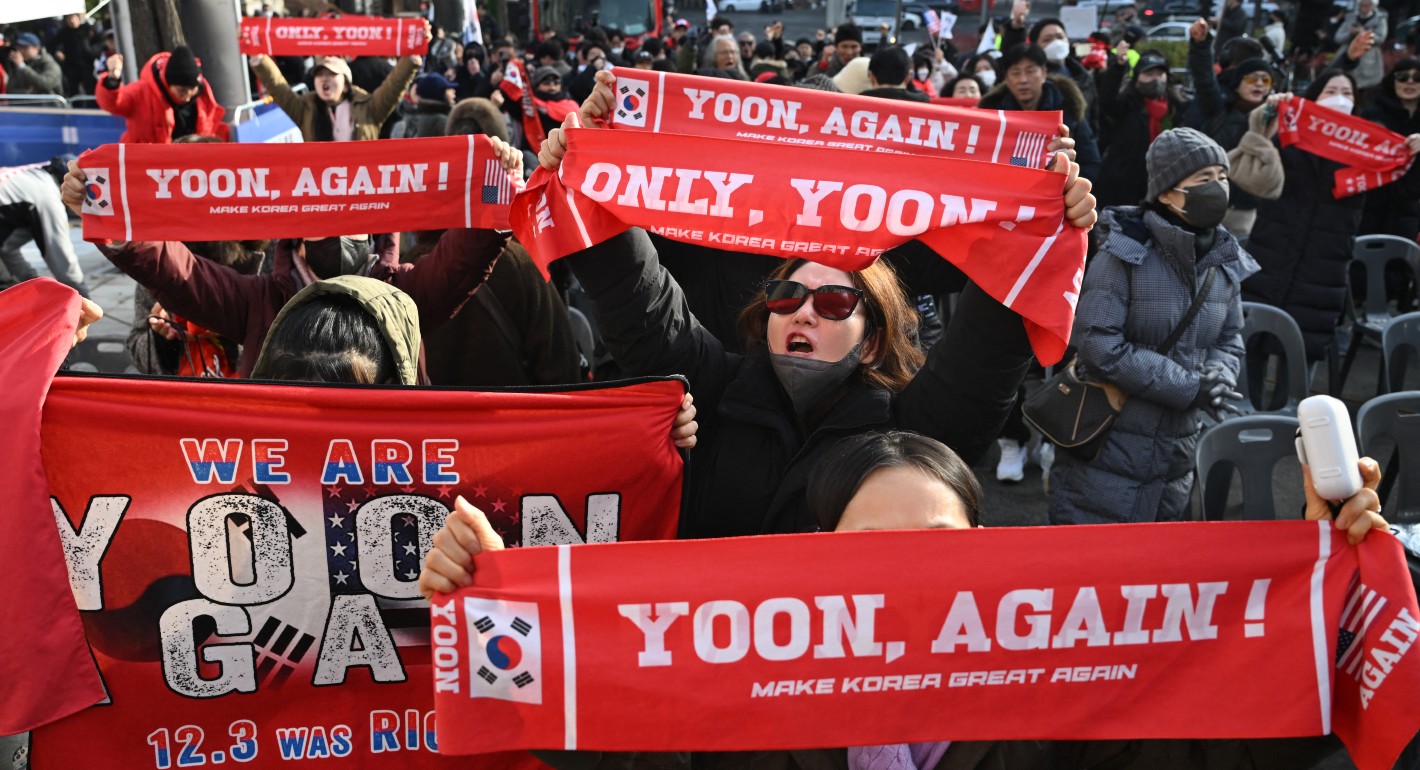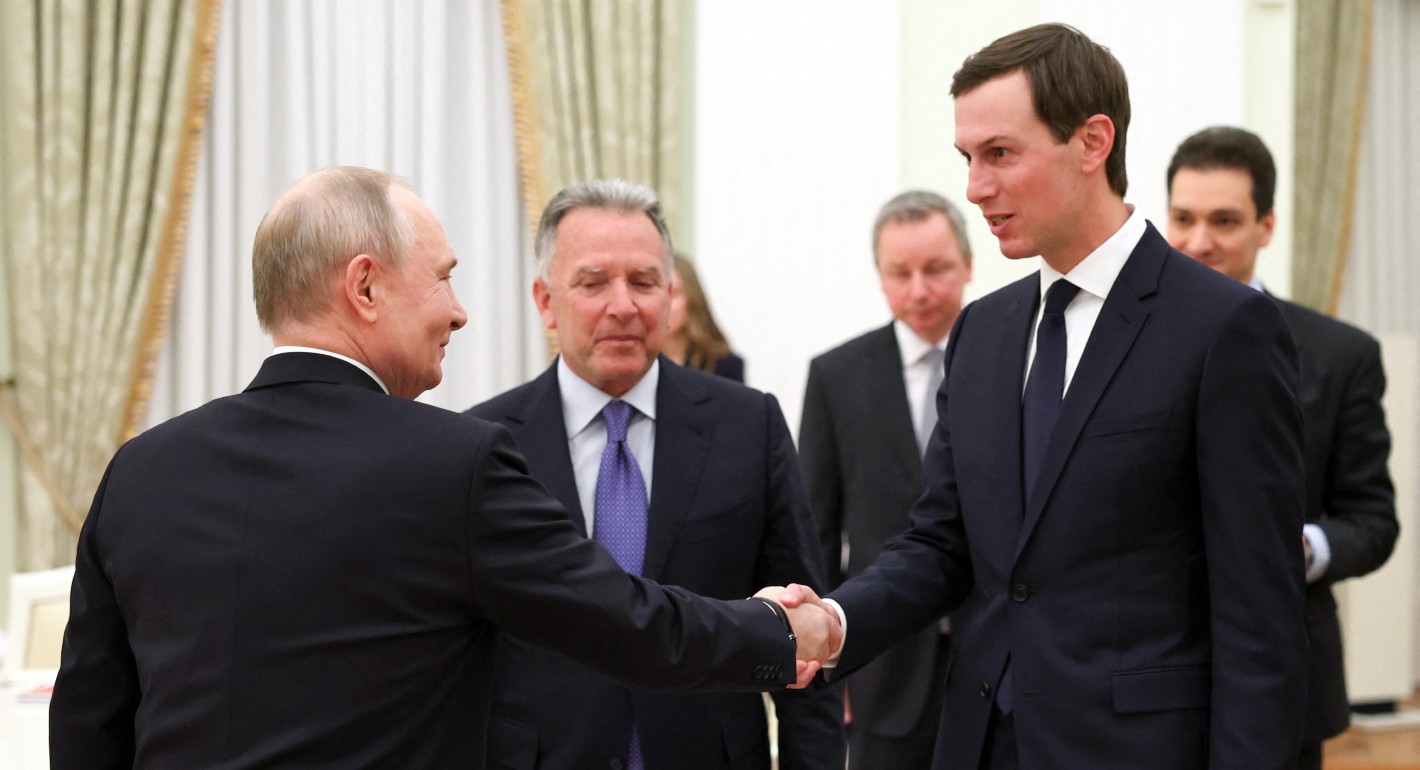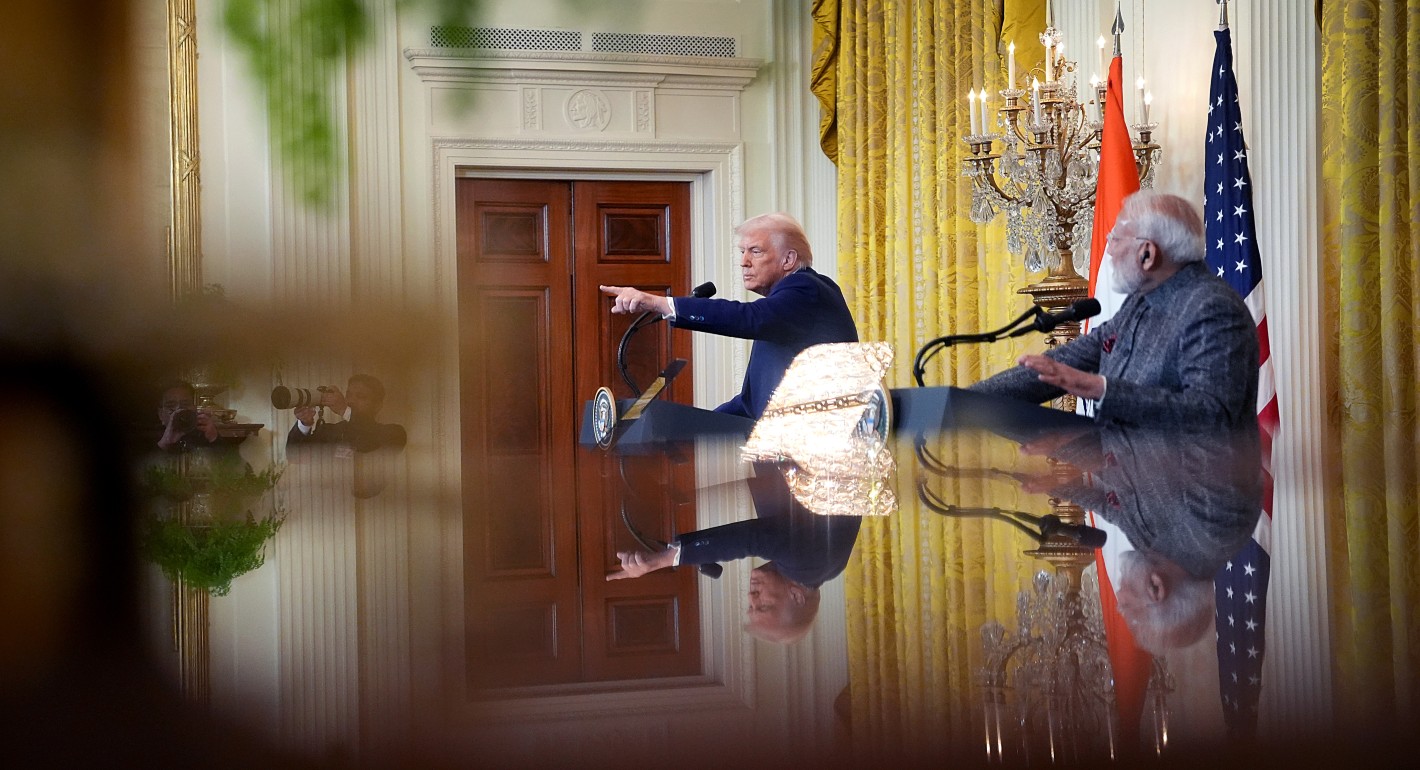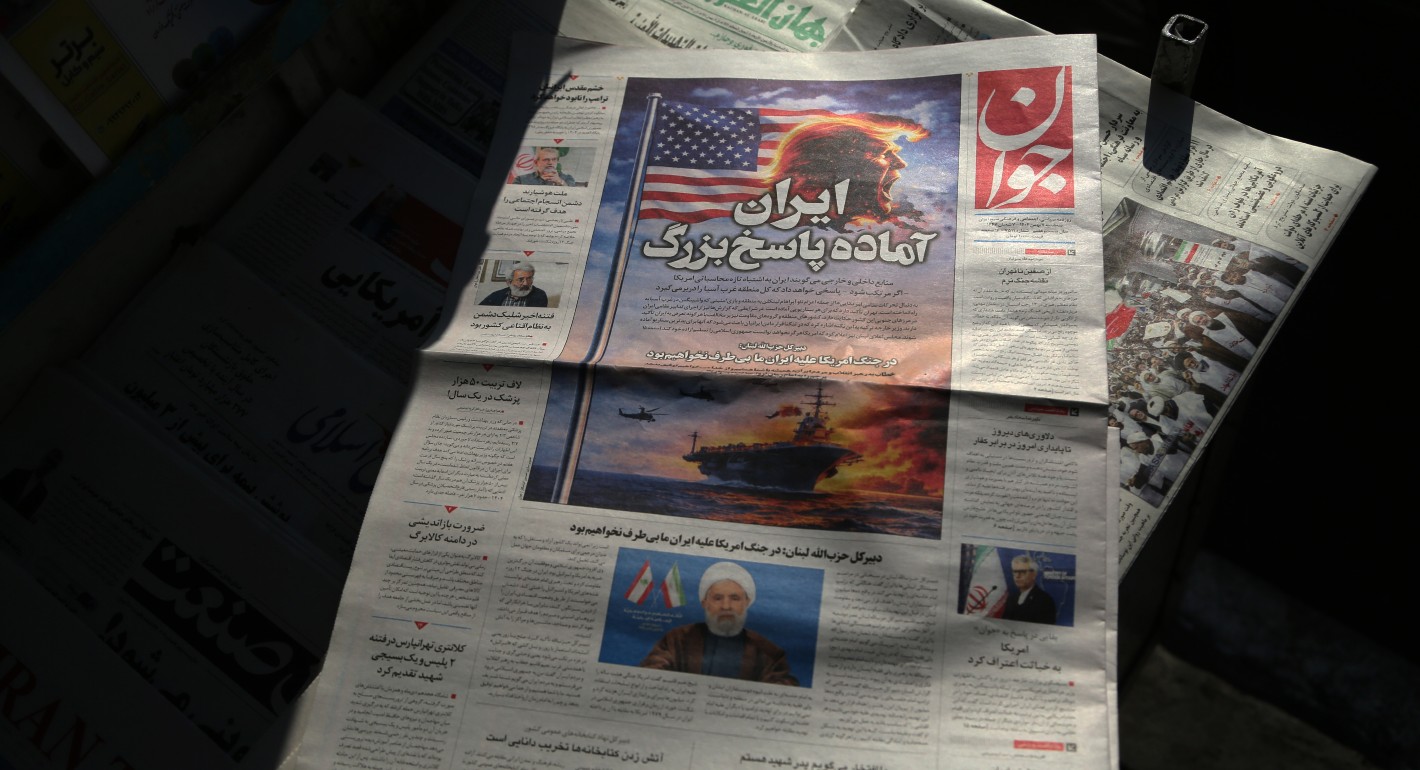New Saudi podcasts offer a window into an otherwise opaque policymaking process, but face limits in how much they can criticize official policy.
{
"authors": [
"Andrew Leber"
],
"type": "commentary",
"blog": "Emissary",
"centerAffiliationAll": "dc",
"centers": [
"Carnegie Endowment for International Peace"
],
"englishNewsletterAll": "menaTransitions",
"nonEnglishNewsletterAll": "",
"primaryCenter": "Carnegie Endowment for International Peace",
"programAffiliation": "MEP",
"programs": [
"Middle East"
],
"projects": [],
"regions": [
"Saudi Arabia",
"Middle East"
],
"topics": [
"Domestic Politics",
"Foreign Policy",
"Civil Society"
]
}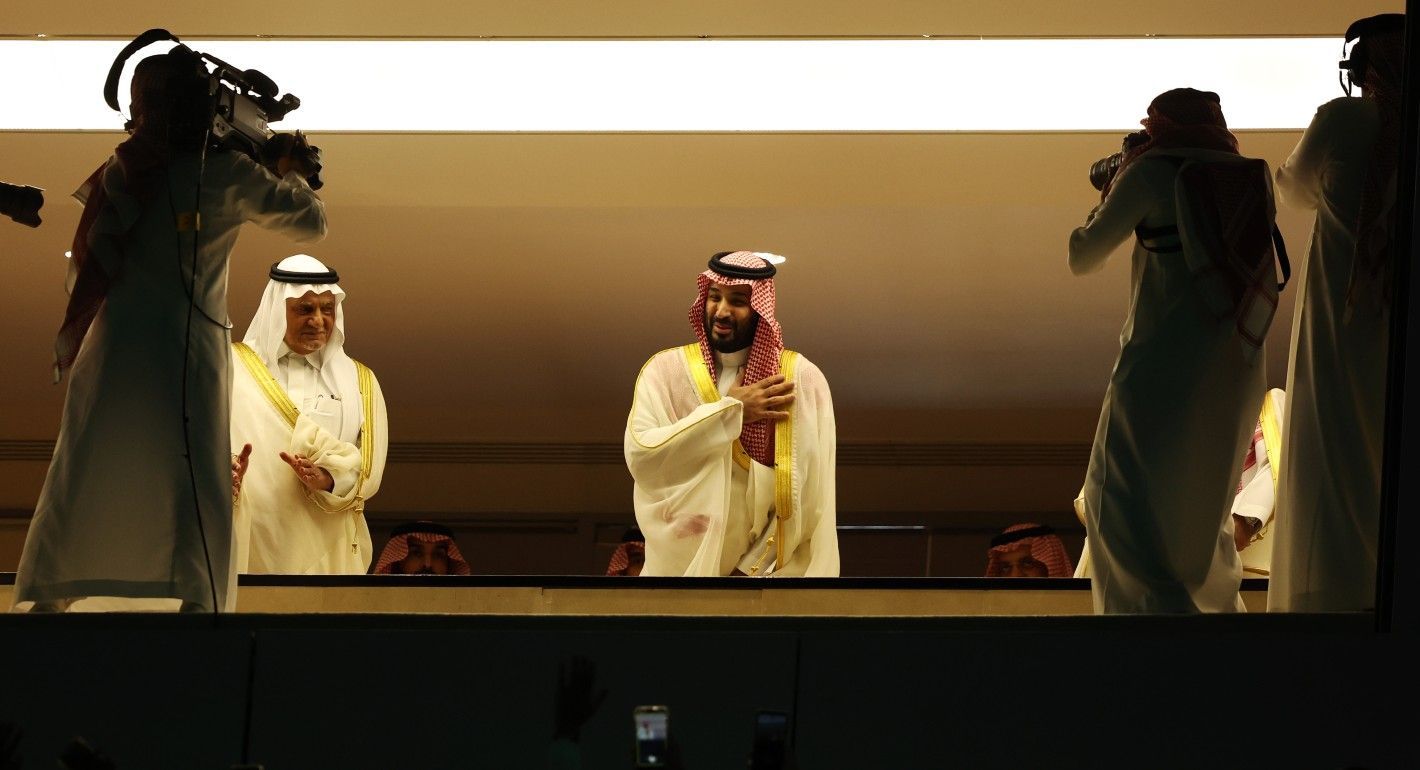
Crown Prince Mohammed bin Salman at King Abdullah Sports City on May 30, 2025 in Jeddah, Saudi Arabia. (Photo by Yasser Bakhsh/Getty Images)
The Riyadh Comedy Festival Isn’t Trying to Change Your Opinion of Saudi Arabia
The driving forces are domestic.
Why has the Saudi state invested so heavily in global cultural events and institutions?
In the past month, Saudi Arabia’s hosting of the marquee Riyadh Comedy Festival and participation in a proposed buyout of video game company Electronic Arts (EA) have reignited criticisms that these efforts are mere reputation laundering. In this view, Saudi Arabia’s cultural investments serve to distract from its poor human rights record and position the country as an attractive destination for tourists and foreign capital. Yet while official Saudi messaging has hyped the kingdom’s ability to bring in “world class stars,” the driving forces behind these audiences are domestic concerns: shaping mass social values, generating new revenue, and meeting the personal interests of key officials.
If the comedy festival was intended to improve Saudi Arabia’s image abroad, that effort has backfired spectacularly. Comedians’ discussions of the festival on various podcasts soon snowballed into more vocal criticism. Human Rights Watch pointed out the kingdom’s suppression of activism and free speech and called on participants to speak out against these restrictions. Comedians who turned down invitations slammed their counterparts’ involvement in jokes and statements, even publicizing terms of participation that forbid criticism of Saudi Arabia, the royal family, or any religion. In all, the festival has served largely to bring Saudi Arabia’s human rights record back into public debate in the United States and elsewhere.
Nor has Riyadh turned many participants into effective cultural ambassadors for the kingdom. Few comedians publicly listed Riyadh on their tour schedules or promoted their participation outside of official Saudi social media accounts (with Chris Tucker a notable exception). Even when comedians defended their participation, they hardly did Saudi Arabia’s image any favors. Christopher DiStefano and Mark Normand both cracked jokes about restrictions on women’s rights in Saudi Arabia, while most just defended taking a paycheck.
No doubt the presence of several high-profile names—Aziz Ansari, Dave Chapelle, Louis C.K., and Bill Burr, to name a few—cuts against Saudi Arabia’s pariah status in the aftermath of Jamal Khashoggi’s murder, for Saudi leaders and domestic audiences alike. Then again, that point was largely made by then president Joe Biden with a 2022 visit to the kingdom, part of a broader deprioritizing of human rights in U.S. foreign policy. So why invest sizable sums in a major comedy festival?
Domestic considerations drive these efforts. First and foremost, events such as the comedy festival form part of an ongoing effort to have “quality of life” opportunities—including entertainment—offset the Saudi monarchy’s declining generosity toward its citizens and its de-emphasis of religion (and especially religious authorities) as a source of legitimation. In an early 2016 interview, de facto ruler Mohammed bin Salman (MBS) noted that “good recreational and cultural opportunities” could compensate for lower per-capita incomes—a pitch subsequently embodied in the General Entertainment Authority (GEA), a state-backed vehicle for promoting public entertainment. Where it once tested the waters with closed-door concerts, the GEA now sponsors wide-ranging festival “seasons” (the comedy lineup forms part of Riyadh season), veritable raves in the deserts surrounding major cities, and more.
While part of this reflects an effort by Saudi authorities to shape what Saudi citizens should want—anything other than a political voice or political causes—it also reflects what many Saudi citizens already do want. The dominance of English-language comedians in the festival lineup reflects widespread Saudi access to satellite television, websites, and social media platforms even prior to Vision 2030. This is reinforced by scholarship programs that have sent hundreds of thousands of Saudis to live in the United States and other Western countries (alongside select other destinations).
These dynamics have contributed to a sizable Saudi audience for Western (and especially U.S.) cultural outputs, prominent comedians included. Gabriel Iglesias has joked about a Saudi royal flying him into the country in 2012 for a private show, where a large (and all-male) audience knew his routines from YouTube. Saudi comics were trying out their own material on YouTube and in underground clubs long before Vision 2030 was announced, even if the GEA subsequently opened spaces for more public standup. (Saudi creatives are still subject to periodic harassment and arrest when they run afoul of ill-defined red lines.)
Saudi leaders also view the entertainment sector as a future economic engine, and one where the kingdom’s well-educated population might have a comparative advantage in Arabic-language markets. Turnout at the festival points to a potential audience for the kingdom’s own comics. Media firm Thmanyah, for example, recently acquired comedy-club startup Comedy Pod as a means of reaching new audiences and expanding out from its more “serious” podcast offerings. In addition, the GEA is unlikely to sustain the premiums it pays to bring global acts to Saudi Arabia, with even toothless oversight bodies such as the kingdom’s Advisory Council raising questions about its spending and poor record-keeping.
Financial motives are clearer when it comes to the EA acquisition, as demonstrated by the involvement of private equity firm Silver Lake and Jared Kushner’s Affinity Partners investment company. Saudi Arabia’s Public Investment Fund (PIF) is paying a premium to establish market dominance in an industry it is betting will continue to generate significant revenue. Saudi-owned Scopely (which owns Pokemon Go) provides a model for translating market dominance into financial returns, with the company spending over $1 billion to drive downloads of mobile game Monopoly Go. These ventures join broader state investments in gaming as well as media platforms.
Beyond these strategic rationales are the personal interests of MBS and his close confidantes. Much as the EA deal is likely to generate significant returns in the years to come, Jared Kushner’s appeal for PIF funding surely benefited from the fact that MBS is reportedly an avid gamer (even if he is more partial to Microsoft’s Call of Duty than EA’s Battlefront series). Turki Al-Sheikh, head of the GEA and longtime friend and gaming buddy to MBS, has also shaped the kingdom’s investments into sports and entertainment. Al-Sheikh is the driving force behind the GEA’s heavy investments in boxing and other combat sports, which he has been promoting alongside the comedy festival during the Riyadh season schedule. (PIF Governor Yasser Rumayyan, meanwhile, has steered the fund’s investments in his “ultimate passion”: golf.) It’s not too hard to image an elder millennial who grew up with U.S. entertainment media signing off on the comedy lineup in Riyadh.
As the organizers of the Riyadh Comedy Festival have discovered, however, even events driven by domestic factors are not easily walled off from the wider world. Building up a Western-friendly entertainment sector inevitably exposes the kingdom’s human rights record to greater criticism and scrutiny. For one, there has been far more discussion of freedom of speech in Saudi Arabia in the past two weeks than when the Saudi government executed a journalist on national-security grounds in June. These criticisms still leave Saudi officials sensitive to mere mentions of human rights abuses—several comedians were uninvited after talking about how little they cared about whether Saudi Arabia had “killed a reporter” or featured “forced labor.” However, moral appeals to individual comics will do little to promote free expression abroad when their own governments are uninterested in doing so—and are even attacking free expression at home.
Emissary
The latest from Carnegie scholars on the world’s most pressing challenges, delivered to your inbox.
Carnegie does not take institutional positions on public policy issues; the views represented herein are those of the author(s) and do not necessarily reflect the views of Carnegie, its staff, or its trustees.
More Work from Emissary
- What Happens When a Conservative Movement Continues on Without a Leader?Commentary
Lessons from Korea’s political right.
Darcie Draudt-Véjares
- What If Trump Gets His Russia-Ukraine Deal?Commentary
It’s dangerous to dismiss Washington’s shambolic diplomacy out of hand.
Eric Ciaramella
- With the RAISE Act, New York Aligns With California on Frontier AI LawsCommentary
The bills differ in minor but meaningful ways, but their overwhelming convergence is key.
Alasdair Phillips-Robins, Scott Singer
- The Trump-Modi Trade Deal Won’t Magically Restore U.S.-India TrustCommentary
Washington and New Delhi should be proud of their putative deal. But international politics isn’t the domain of unicorns and leprechauns, and collateral damage can’t simply be wished away.
Evan A. Feigenbaum
- The United States Should Apply the Arab Spring’s Lessons to Its Iran ResponseCommentary
The uprisings showed that foreign military intervention rarely produced democratic breakthroughs.
Amr Hamzawy, Sarah Yerkes

